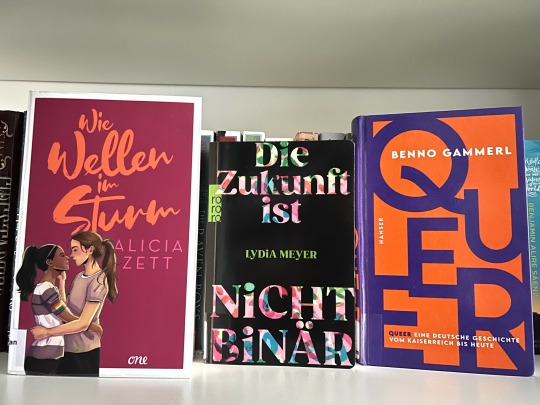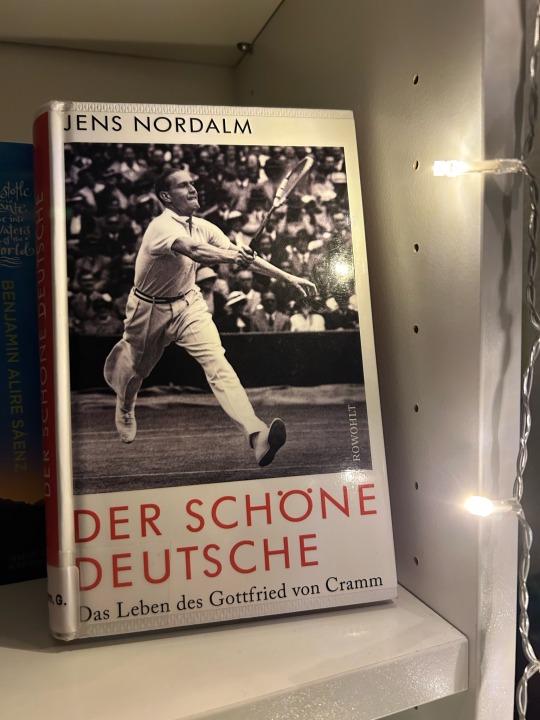#deutsches kaiserreich
Explore tagged Tumblr posts
Text

German T-Gewehr anti-tank rifle team of Infanterie-Regiment Nr. 124 of 27 Württemberg Infanterie-Division, France, late summer-autumn 1918. Accessioned as Q 44794 in the collections of the Imperial War Museum
#anti-tank rifle#t-gewehr#trench warfare#bray-sur-somme#world war 1#hundred days offensive#end of world war 1#deutsches kaiserreich#imperial germany#deutsches heer
3 notes
·
View notes
Text

1910 Glückwunsch zur Konfirmation.
0 notes
Text
Bei erneut sehr stark ansteigenden Ar***mutzahlen eines vielleicht nur einzelnen Landes droht dessen Bevölkerung wie seiner Regierung erstmals sogar Krieg - mit dem direkten sogar auch eigenen Nachbarn, schon allein nur deswegen!! Die Kriegsgefahr steigt!!! ... Erstmals erfolgt sogar die Erfindung der Mund-Ei-Aktion oder Munition dadurch, zusammen mit der auch Gay Wehr oder dem Gewehr und der auch ihm gehörenden Kugel - fuer gleich die gesamte Erde, wie auch die des M-il(l)i-tärs oder Tiers *der Einzelbuchstabe 'M' steht dabei erneut fuer den (jeweils doppelseitigen) Hintern von Männern wie Frauen oder von Armeen überhaupt! 'Alle sind sie Opfer von versuchter Entmenschlichung!!' (Zeitungen).
"Der Ukraine Krieg besitzt die selbe Rolle!!"
*'Dem Darmkrebs keine Chance lassen!!"
'Kiew will unbedingt weiter die deutsche Rakete von Berlin geliefert erhalten!! Erhoffen tut man sich davon eine wesentlich bessere Aussicht wie Chancen bei womöglich zukünftig vielleicht doch noch stattfindenden Verhandlungen!!'
#Taurus #weltweite Musiker männlich Deutschland
'Wladimirs Hintern *engl.: butt stellt somit nicht viel anderes immer auch dar als sogar der Ar*** Toms es ist mit auch seiner A-Waffe - der des Amerikaners! Beiden ist er wichtig. Seine Gesunderhaltung ist es!!'
#Kerle #die Kernenergie #zu viel Energien haben oder sie selber auch besitzen #seine genug Energien auch eigene in etwas oder jemand investieren
#Tote Hosen #Ärzte #menschliche Gesundheit sich erhalten
Gay Mund Ar*** Ei(t). versteckte und international gebräuchliche iBedeutung oder Bedeutungen ganz oft von Einzelbuchstaben wie dem 'M' und sogar des 'H' - als lediglich im Grunde nur erneut zur Seite dabei gekipptem auch M. Selbst der Dick - als Amerikaner - steht oder stünde dabei vielleicht erneut nur vor der Tür oder von Türen eines Tages auch selber, wäre zu befürchten: der selbst Diktator sehr grosse zukünftige sogar dann vielleicht des auch eigenen Landes oder extreme Rechte.

'He (someone like you are it!) who wants to persuade others - as a writer or public speaker - shuld not put his trust in the right argument, but in words. The power of this has at all times been much greater than that by even sense!!' *other worldwide authors (very likely about me.)
,It's by far not so important how strong you believe in a topic. What much more counts is what the public does - after your speech!!"
'If you can not put your message in a simple one sentence (like you always seem to can do it!), why, normally you won't make it then even in several hours!!"
'With regard to even ourselves we here - in even our institute - at this time develop the must powerful dual core laser in the world. By this - (at least we!) - do help others that a fundamental change in this world simply must occur!'
"Wir - als Kollegen an der Uni - arbeiten und stehen hier noch gemeinsam ein für sowohl die Freiheit und das Freisein durch Wissenschaft ..."
... und menschlicheren Welt!"
... des Rechts auf Bildung (möglichst viel davon und oft!) und die Geschlechtergleichstellung!!'Und damit auch für die Verwirklichung von Demokratie und deren Werte! Dem Rechtsstaat idealen!' *dem sozialen; so hiess es noch auch im Original, (P)os-, some. Heutige Vorsilben und deren oft doch sehr deutlichen Unterschiede bei sowohl der Verwendung wie auch deren Sinnbedeutung im Einzelnen oder dem inneren Sinn den manche von ihnen ergeben.

#balls#der Gewehrlauf#der Mann the male engl.#die Kugel#17 Jahr blondes Haar#du kannst nicht immer nur 17 sein!#der alte Mann und das Mehr!#die deutlich jüngere Freundin#doppelte Veranlagung#gay#two halves by the moon#Bye Bye Junimond!#der Palästina Konflikt#Ukrainische Städte zerstört#die Geisel#Angriff auf England#der deutsch-französische Krieg 1871#das Kaiserreich#Hamas#Gaza#3Streifen (aus dem Sport)#Berlin wird aus der Luft bombardiert#Geiselnahmen (und Mord)#der Gegenangriff militärische#Besetzung Warschaus#die Polen#the butt engl.#in etwas sein#to hit#ein Er
0 notes
Text
You know what this has happened too many times, so I'm addressing it.
If you send me an ask about donating for Gaza or something else, I will block you. Other asks are welcome by all means AND ENCOURAGED, but if you're just trying to get money, You will be blocked.
ALSO update because I have gimmick blogs now. Here's the list
@polish-lithuanian-cw-real
@koenigreich-preussen-real
@empire-russia-real
@margraviate-brandenburg-real
@deutsches-kaiserreich-real
@miedzymorze-real
@denmark-norway-real
@oshabsol
@osha-oshawott
@polish-hungarian-cw-real
ALSO ALSO, New shawarmafied me background courtesy of @osmows-real
40 notes
·
View notes
Text
My Thoughst about A Stepmother's Märchen
So it is @stepmarchen anniversary of their blog and we both talked in the comments about ASM (obv) and I brought up how I thought about some of the things in the story. And I though I just make an entire post about it!
So first off: I absolutly love the story and the art. But not every story is perfect and even those who love the series will have some nit-picks/"negativ" thoughts. I also want to preface - I am german (and actually a quarter Prussian but that doesn't really count now, doesn't it).
Now, let us start with some things I like about this story:
I love how complexe the characters are and how they fit the themes of the story. They are so well written - even the onse we hate or despise (*cough* Johan *cough*). We see some of their reasons but they are not excused. I can't wait to see more of the older characters backstorys! The setting is one we see a lot in mahwa (especially isekai/reincarnation) but it still feels fresh to me. It fits the overall vibe of the story a lot and we do travel from place to place and not stay in one location too long (except the Neuschwansteins estate ofc). The art really complements the story and I love how it is a well balanced mix between the manhwa style and a semi-realistic one.
And now my nit-picks:
My biggest gripes are the names that are not only used for places but for the characters. For example the name of the empire itself always catapultes me a little out of the story when I read it. In the story the place Shuri lives in is called "The Empire of Kaiserreich" as we all know. But the problem (for me) is here that the word "Kaiserreich" is already the german word used for empire. So it is basically "The Empire of Empire" which doesn't make much sense?? I know that the name Germany had for a long time is "Deutsches Kaiserreich" or "Kaiserreich of Germany" which consited of both Germany and Prussia. And thus Kaiserreich is also a name. But we also use it as a noun to talk about an empire so it feels a little weird. This is the most common complain I see so I don't want to hammer too much on it.
Now character names (primarily first names since most of the last names ar derived of actual places). We have really good germanic names like Albrecht (love his nickname btw), Johan/Johannes, Heidi, Theobold, Ludovika, etc. But some names seem like a... weird choise for a germanic setting. (I am also not counting Latin names since that is were the German language originates from) Let's start with the Neuschwansteins and with Shuri. The name Shuri is not of german origin and feels a little out of place sometimes (I think one of it's origins is Japanese). Same goes for Jeremy, which is a british name and only got popular in Germany around the 1970s. Leon is of greek origin. The exttended family: The first two siblings of Johan are fine even though I am questining the use of Müller as a first name since it is commonly a surename derived from an occupation. Penceler is not that bad either but would usually be written with an s and is actually a surname as well which is a variant of the surname Hensler. Valentino is an italian name that got popular in the 2010s in Germany. Staff: (Next I wanted to do Roberto, but apperintly it is a german name??? The more you know, I guess.) Gwen is of welsh origin. (I do not remember the names of the knights working for Neuschwanstein)
Now the others I can remember. Royal Family: Most of them are fine but Letran seems to be a surname. And at first I thought their surname Baden Mismarck was a typo. (Can anyone tell my why ORKA and Spice&Kitty chose Mismarck and not Bismarck? Maybe to not cause confusion when searching fro the characters?) Church: Cardinal Richelieu is a french name and there actually was a man named Cardinal Richelieu, who also came to be known as "The Red Eminence". Nürnberger: Norra is a scandanavian name and a variation of Nora.
Onto appearances
Character design whise I can't really say much since it is indeed fanatsy and not trying to do real life acuracy. But it still bugs me a little that we have all these actually acurate haircolours but Shuri has to have pink hair? And Ludovika + Theobolt white? Like I understand why. And if you squint you could say that Shuri has really light red hair and Ludovika + Theobolt have really light blond hair. This is the tiniest nit-pick of all though. Most of my nit-picks are with the names. At least what they wear stays consistant all the time.
This is all from the top of my head. I saw on this reddit post that people discussed the different time periods that ASM consists off/takes insperation from. I am not a really good history buff so I can't really talk about the historical acuracy of the story (even though I do study art history and should know about some of these things oops-).
Reminder: I love this story and did not write this to hate on ORKA and Spice&Kitty. And most of the nit-picks are name related. I did research most of what I have written here while writing this and my appreciation and respect for them has grown immensely.
(On a side note: I fell very deeply for those whos culture has been missrepresented and against those stories, my nit-picks are just a fraction of the injusties these wonderful cultures get. So, authors and artists (myself included), do your reaserch and a proper one at that if you are unfamiliar with the cultur you want to write about or draw. Any culture. Even your own.)
#a stepmother's marchen#so this has gotten long#i hope what I said is not too false here#so do tell me if something I have written out is false or incorrect#i used google to search and we know how unreliable it has become due to ai
19 notes
·
View notes
Note
@polish-hungarian-cw-real @polish-lithuanian-cw-real @denmark-norway-real @koenigreich-preussen-real @deutsches-kaiserreich-real @empire-russia-real @liberalsarecool @angus-mcfife-xiii-of-dundee-blog @angus-mcfife-of-dundee
thank you for your input, your suggestions have been added to the database
(creator added: history book called, it wants it's dead countries back)
#randomly generated tumblr posts#randomly generated posts#gimmick blog#gimmick account#into the gimmickverse
10 notes
·
View notes
Note
Hello my self
- Bavaria from @deutsches-kaiserreich-real
Oh hey myself, how are you doing?
3 notes
·
View notes
Text

Moin. Hier ist der zweite Teil von - Eine kurze Geschichte des weißen Goldes von Lüneburg: Dem Salz.
Auf dem vorletzten Panel seht ihr übrigens ein Beispiel dafür, warum das oft fälschlich romantisierte und aktuell von Rechtsextremen zurück ersehnte `Deutsche Kaiserreich´ (1871-1918 - gipfelte im ersten Weltkrieg) absolut NICHTS ist, was man sich ernsthaft zurück wünschen würde. Ich kann nur immer wieder appellieren, sich mehr mit der deutschen Geschichte zu beschäftigen, denn das entkräftet den "Früher war alles besser" - Bullshit und Nazikitsch gewaltig!
In der Epoche veränderte sich einiges zum Positiven im Gegensatz zu den Gesellschaftsregeln vorher. Vor allem unter Wilhelm II. , z.B. in der Medizin, Wissenschaft und auch Sozialpolitik. ABER: Das Ganze war seeehr weit entfernt von dem was wir heute als Sozialstaat und Demokratie erleben.
Das Deutsche Kaiserreich war eine föderale, konstitutionelle Monarchie, in der die Militarisierung so sehr im Forderung stand, dass sogar Kindergarten-Kindern bereits Marschlieder beigebracht wurden. In der Frauen weder das Recht der freien Berufswahl, noch das Wahlrecht besaßen ( Das Recht zu studieren und selbst Verträge unterzeichnen, erstritten sich die Frauen nach und nach, trotzdem: Der Mann behielt größtenteils gesetzlich die Vormundschaft über seine Frau, Schwester, Tochter, Mutter, etc.). In der Homosexualität gesetzlich verboten war und mit Gefängnis bestraft wurde. In der es die Todesstrafe gab (durch Enthauptung). In der Kinderarbeit noch immer zum Alltag ärmerer Familien gehörte, auch wenn bereits neue Regelungen getroffen wurden. Größtenteils aber nicht aus Empathie, sondern weil die Schulbildung derart darunter litt, dass die Kinder keine brauchbaren Arbeitskräfte darstellten. Man starb öfter und schneller an vielen Krankheiten, die heute dank Impfungen kaum noch eine Rolle für uns spielen. Es herrschte ein großer Unterschied zwischen arm und reich. Finanziell schwächere Familien lebten unter krankmachenden, sehr schweren Umständen. Und wenn man als unverheiratete Frau schwanger wurde, war man sozial so richtig beschissen dran. Die Mutter ebenso wie das Kind. Darum versuchten unglaublich viele Frauen in ihrer Verzweiflung abzutreiben. Auf heute unvorstellbar brutale Weise. Was zu einer hohen Sterbensrate unter besagten Frauen führte.
Das Schöne und Interessante an der Epoche sind vor allem die kulturellen, neuen philosophischen und sozialeren, revolutionären Gedanken und Werke der Zeit. Die Frauenrechtsbewegung, die demokratischen Strömungen, die friedlichen Ideen entgegen des gewohnten Militarismus.
Heute bekommen wir aus der Zeit vor allem neu interpretierte Film/Serien/Roman-Versionen präsentiert, die romantisierte Realitätsverzerrungen zeigen.
Wenn ihr selbst mal schauen möchtet, was damals in den verschiedenen Jahren so los war, hier ein Link zur Jahreschronik des LeMO (Lebendiges Museum Online) - https://www.dhm.de/lemo/jahreschronik/1874
#fcknzs #demokratieschützen

















#lüneburg#history comics#stadtgeschichte#saline#weirdozwebcomics#kokee thornton#illustration#webcomics
2 notes
·
View notes
Text
Some more Definitions of Political Words cause y'all need it
Terrorism: Warfare that aims to defeat an enemy by destabilizing their civilian society via fear. A lot of methods are terrorist, but bombings of public spaces are done the most, due to their effectiveness at achieving the aforementioned.
Terrorist: A person who commits terrorism
Imperialism: The political agenda of expanding one's influence over other nations and people
Imperialist: A person who commits imperialism
Colonialism: A form of violent imperialism in which military forces are used to occupy foreign territories that are remote from the imperialist
Expansionism: A form of violent imperialism in which military forces are used to bring territories neighboring the imperialist under their control (annexation)
Fascism: The political notion that natural laws govern human society, based on a misinterpretation of Charles Darwin's concept of 'Survival of the Fittest', fascists imagine humanity to consist of multiple 'races' and desire to become the strongest, 'purest' 'race' through conflict; through the destruction and subjugation of other 'races'
Nationalist Socialism/Nationalsozialismus: The version of fascism used by Adolf Hitler, Imperial Chancellor of the Weimar Republic of Germany and later self-declared 'Leader'/'Führer' of the 'German Empire'/'Deutsches Reich', it focused on misapropriating socialist themes that were popularized in Europe through the communist revolution in russia 1917
Nazi: A short form of Nationalsozialist, coined by the allies in WWII. The Nazis themselves never used this term and referred to their state as the 'German Empire'/'Deutsches Reich' (not to be confused with Deutsches Kaiserreich, which was the monarchy that predated the Weimar Republic of Germany, while the 'Deutsches Reich' was a military dictatorship that overthrew and replaced the Weimar Republic of Germany
Socialism: The political notion that capitalism and religion oppress the collective of workers who form the backbone of modern society, and that the collective of workers must fight to get what they deserve in society
Rebellion: The act of organized disobedience toward a given authority, committed by (a) subject(s) of said authority
Insurgency: The act of organized violence with the goal of seizing power from a given authority, committed by (a) subject(s) of said authority
Revolution: A successful insurgency
Holy War/Jihad: Warfare with religious motivation (Jihad means 'Sacred Struggle' in Arabic, the term does not necessarily imply violence, but even Islamic peoples usually do not use the term for the peaceful spreading of their religion)
Democracy: The principle of the grand majority of the people getting their desire fulfilled (IT IS NOT A STATE FORM)
Republic: From the Latin term 'Res Publica'/'Subject of the People', a state form based on limited democratic systems that allow the grand majority to get its desires fulfilled while protecting the minority from them. (e.g. an angry mob burning a person at the stake is an act of democracy, and a republic protects the person from the angry mob) The term is frequently abused in the modern day by autocrats, in order to appear democratic.
#politics#terminology#terrorism#terrorist#imperialism#imperialist#colonialism#expansionism#fascism#nationalist socialism#nazi#socialism#rebellion#insurgency#revolution#holy war#jihad#democracy#republic
4 notes
·
View notes
Text
Hallo, Ich bin das Deutsche Kaiserreich.
Yet another gimmick blog of @sanemero57tempmain
yk the drill, same as Brandenburg, PLC, Russian Empire, and Prussia
Text colors:
Prussia
Bavaria
Baden
Württemberg
Hesse
Saxony
The empire as a whole
Mod
(difference between empire and mod is empire is bolded and italicized at all times)
3 notes
·
View notes
Text
Books read in January <3


Wie Wellen im Sturm by Alicia Zett
Die Zukunft ist Nicht-binär by Lydia Meyer
Queer - Eine Deutsche Geschichte vom Kaiserreich bis heute by Benno Gammerl
Der schöne Deutsche - Das Leben des Gottfried Cramm by Jens Nordalm
One of my plans of this year is to read more, so I decided to start this little series where I post a picture of the new book(s) I read each month.
People probably won’t be interested in seeing this all too much, but I still hope it will motivate me to show you my progress, even if it probably won’t be much.
Despite what one might believe, working at the library wasn’t exactly beneficial for my motivation to read in the last three years.
But since I’m through with the apprenticeship and have at least a tiny bit more free time, I hope to make a change this year and pick up one of my oldest and dearest hobbies again.
This month was month of finishing books I started in November/December 2023 that I didn’t have the time to finish. They were all really nice reads.
P.S: I won’t write book reviews or anything, but if there’s ever a title/cover catching your interest I can tell you more about the book!
P.P.S: Expect a lot of German books and books lend from the library in this series, haha.
#my 2024 reads#maybe I should translate the titles here in the tags for those interested#from left to right: Like Waves in the Storm. The Future is Non-binary. Queer: a German history from the Empire to today#and in the other picture: The Beautiful German (about a German tennis player)#I hope I will actually keep this up#and also manage at least one book a month#that would be my dream#anything else would be embarrassing but we will see#I told myself I won’t pressure myself too much this year so if those two plans collide I’ll blow off the book plan rather than the other#writer speaks#reading#books
7 notes
·
View notes
Text

Flotille der Deutschen Kriegsmarine in Linie. Werbung für das Flottenbauprogramm der Reichsregierung mit dem Medium Postkarte. Karte ist 1908 gelaufen.
#Deutsches Kaiserreich#Hohenzollern#Kaiser#Deutsches Reich#Marine#Kriegsmarine#Schlachtschiff#S.M.S.#Kriegsschiff#Marinepropaganda#Propaganda#Flottenbauprogramm#Kaiser Wilhelm II.
0 notes
Link
#15.Jahrhundert#Armut#deutsch#Gesellschaft#Kathedrale#Liebe#Lust#Mittelalter#Mob#Paris#Priester#Quasimodo#Reichtum#Romanze#Schönheit#Verführung#Verrat#Zigeunerin
2 notes
·
View notes
Text
Politische Umbrüche
Die Abdankung von Kaiser Wilhelm II. im November 1918 beendete das Deutsche Kaiserreich. Mit der Ausrufung der Republik durch Philipp Scheidemann und der sozialistischen Republik durch Karl Liebknecht stand das Land an einem Scheideweg. Obwohl sich die gemäßigte sozialdemokratische Richtung unter Friedrich Ebert durchsetzte, blieben radikale Kräfte von links (Spartakisten, später KPD) und rechts (Freikorps, Monarchisten) aktiv.
Die politische Landschaft war zersplittert: Viele Bürger erhofften sich eine stabile Demokratie, während andere die Rückkehr zu einer monarchischen Ordnung oder eine sozialistische Revolution forderten. Diese Spannungen spiegelten sich in der Parteienvielfalt wider, die von konservativen Kräften bis zu radikalen Linken reichte.
1 note
·
View note
Text
War die Oktoberrevolution 1917 die erste Farbrevolution ?
Jochens SOZIALPOLITISCHE NACHRICHTEN An sich trägt dieser Artikel der Schweizer Global Times eine andere Überschrift. Aber ich habe daraus erfahren, dass das deutsche Kaiserreich damals schon eine Menge Geld in Lenin und seine Genossen investiert hatte. Das Muster der Farbrevolution hat also…

View On WordPress
0 notes
Text
Beginn der deutschen Sozialgesetzgebung
Am 17. November 1881 erlebte das Deutsche Kaiserreich einen Moment von historischer Tragweite: Reichskanzler Otto von Bismarck eröffnete den fünften Reichstag mit der Verlesung einer Kaiserlichen Botschaft, die den Grundstein für die deutsche Sozialgesetzgebung legte. Diese Erklärung, offiziell im Namen von Kaiser Wilhelm I., war der Auftakt für eine der umfassendsten sozialpolitischen Reformen…

View On WordPress
0 notes